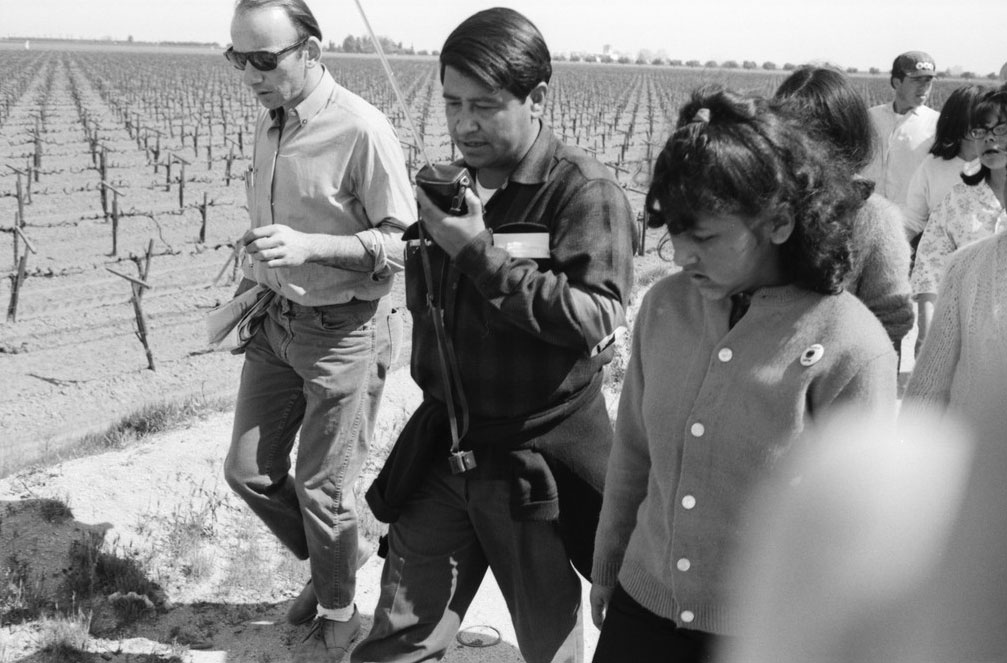Cesar Chavez Day allows us to recommit ourselves to honoring farmworkers and their many indispensable contributions to our nation.
An American hero, Chavez led the non-violent movement in the mid-1900s that paved the way for better wages and working conditions which nearly 2.5 million farmworkers benefit from today.
A Mexican American, Chavez grew up in a farming community in Yuma, AZ in the 1930s. During the Great Depression, his family lost their ranch and moved to California as migrant workers.
To help support his family, Chavez began working in the fields at the age of 11. He witnessed firsthand the injustices, indignities, and discrimination that farmworkers suffered at the hands of growers.
While the newly enacted Labor Relations Act of 1935 gave employees the right to join unions to collectively address unfair labor practices, it excluded farm and domestic workers – positions predominately held by minorities.
In 1952, determined to earn protections for food and farmworkers, Chavez began organizing people to advocate for the reform of labor laws, so farmworkers could have basic human rights such as safe working conditions and living wages so they can provide for their families.
“It's ironic that those who till the soil, cultivate and harvest the fruits, vegetables, and other foods that fill your tables with abundance have nothing left for themselves,” Chavez once said.
A servant leader, Chavez co-founded the National Farmworkers Association (NFWA) in 1962, which fought to empower farmworkers to advocate for social justice reforms and respect in their workplace – the fields. NFWA later merged with the Agricultural Workers Organizing Committee (AWOC) to become the United Farm Workers of America (UFW), which continues to protect the interest of food and farmworkers.
Huelga! Huelga! Huelga! Workers defiantly chanted “strike” in Spanish on picket lines along California’s farming communities in 1965. Chavez galvanized the efforts of Mexican American and Filipino American farmworkers to push for industry change. The workers collectively refused to pick grapes in the region.
During their five-year strike, Chavez would organize a 250-mile march to the state capital of Sacramento to bring public awareness to the mistreatment of farmworkers.
Despite the physical abuse of protesters at the hands of growers and law enforcement, Chavez persuaded organizers to abstain from violence by going on a 25-day hunger strike.
Chavez said “Being of service is not enough. You must become a servant of the people. When you do, you can demand their commitment in return.”
A nationwide consumer boycott of grapes followed, crippling the industry, and forcing growers to negotiate with organizers. In 1970, the growers agreed to higher pay, to protect farmworkers against pesticides, and committed to contributing funds to the union’s health plan. “¡Sí, se puede!,” and “Yes, we can!” Chavez said often throughout the human rights campaign and to the naysayers after the union contract signing.
On Monday it was an honor for me to be with FLOTUS Jill Biden when she visited the Chavez Center in California to pay respect to Cesar Chavez and administer to a group of new citizens the Oath of Allegiance to the United States of America.
The U.S. Department of Agriculture continues Chavez’s legacy by working diligently to ensure farmworkers have proper working conditions. Recognizing the COVID-19 pandemic was especially difficult for farmworkers and other front-line workers, President Biden established a grant program that provides $600 in relief payments directly to these essential frontline workers who incurred expenses in preparing for, preventing exposure to, and responding to the virus. A total of $700 million in grant funding administered by USDA will be distributed to support food and agricultural workers.
Secretary of Agriculture Tom Vilsack has made supporting farmworkers a key priority. During the summer he testified before the U.S. Senate Judiciary Committee in support of the Farm Workforce Modernization Act, which offers Immigration reform for the 1.5 million undocumented workers who put food on our table but are forced to live in the shadows.
In partnership with the Department of Homeland Security, immigrants will be able to apply for citizenship and immigration benefits, receive citizenship education, and attend naturalization ceremonies at USDA field offices in rural areas.
USDA also stands with farmers in the continued fight for equality through its newly established Equity Commission, co-chaired by former UFW President Arturo Rodriguez. The Commission will guide the Department in dismantling barriers historically marginalized communities have faced in accessing USDA programs and services.
Further, USDA is working on a proposed rule to leverage our purchasing power to strengthen worker protections by requiring contractors to certify that they are following more than a dozen federal laws and executive orders that safeguard farmworkers.
On March 31st USDA will establish a staff level working group to share updates, best practices, and ensure coordination around farmworker issues.
Cesar Chavez once said that “we don’t need perfect political systems, we need perfect participation.” We at USDA will continue to do our part to support the millions of farmworkers and their families who play a vital role in driving nearly one-fifth of the country’s economic activity.

